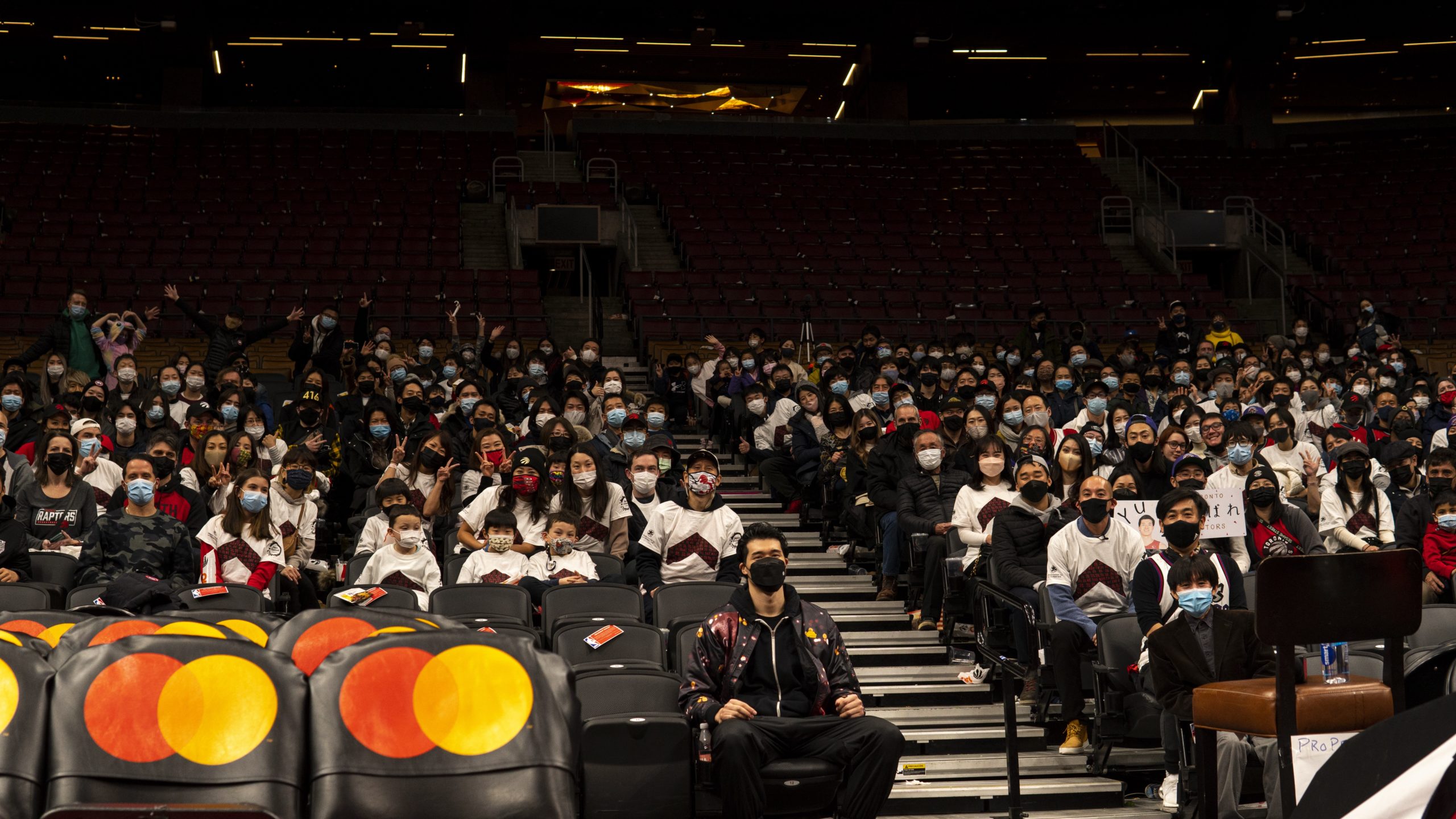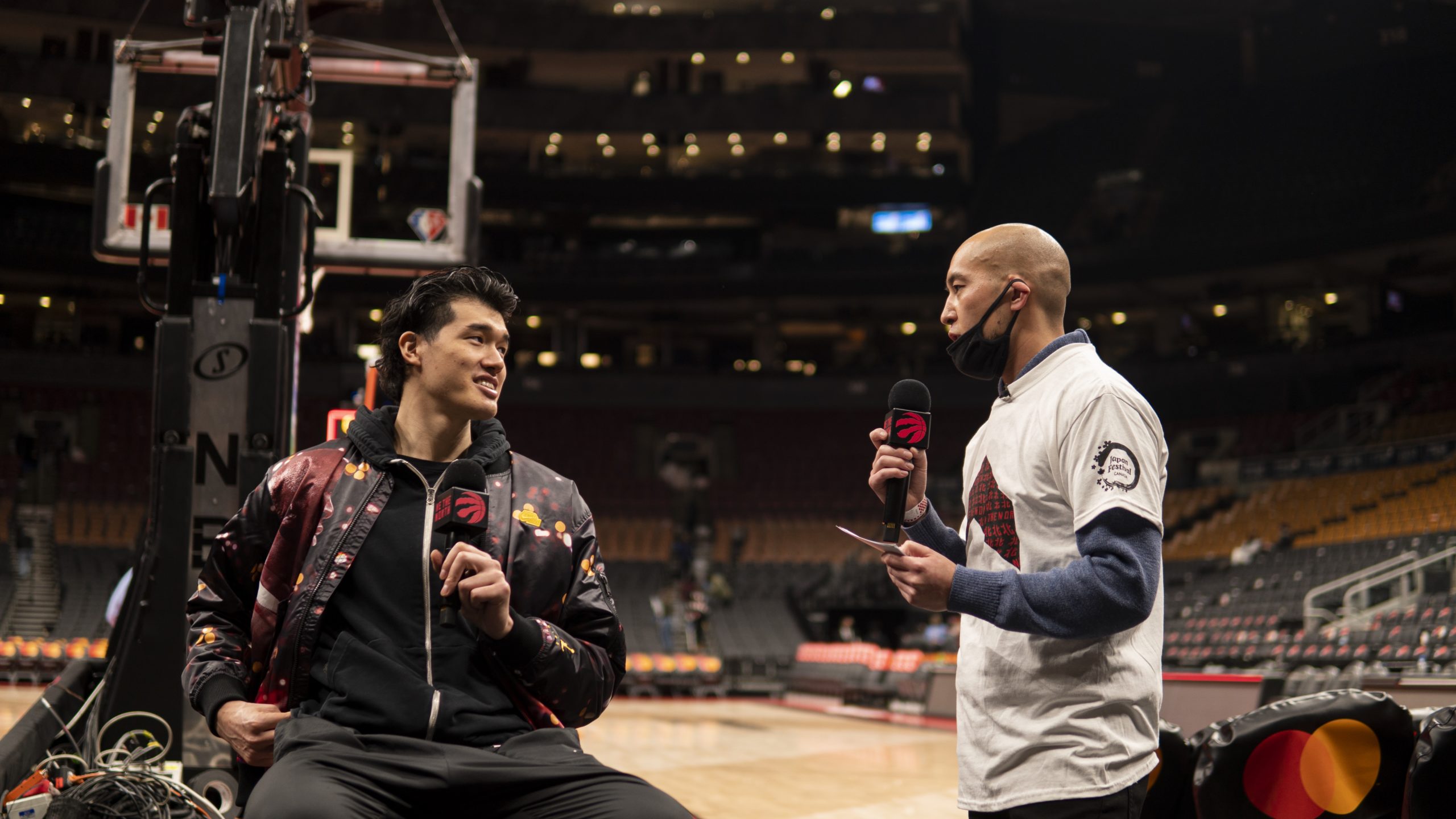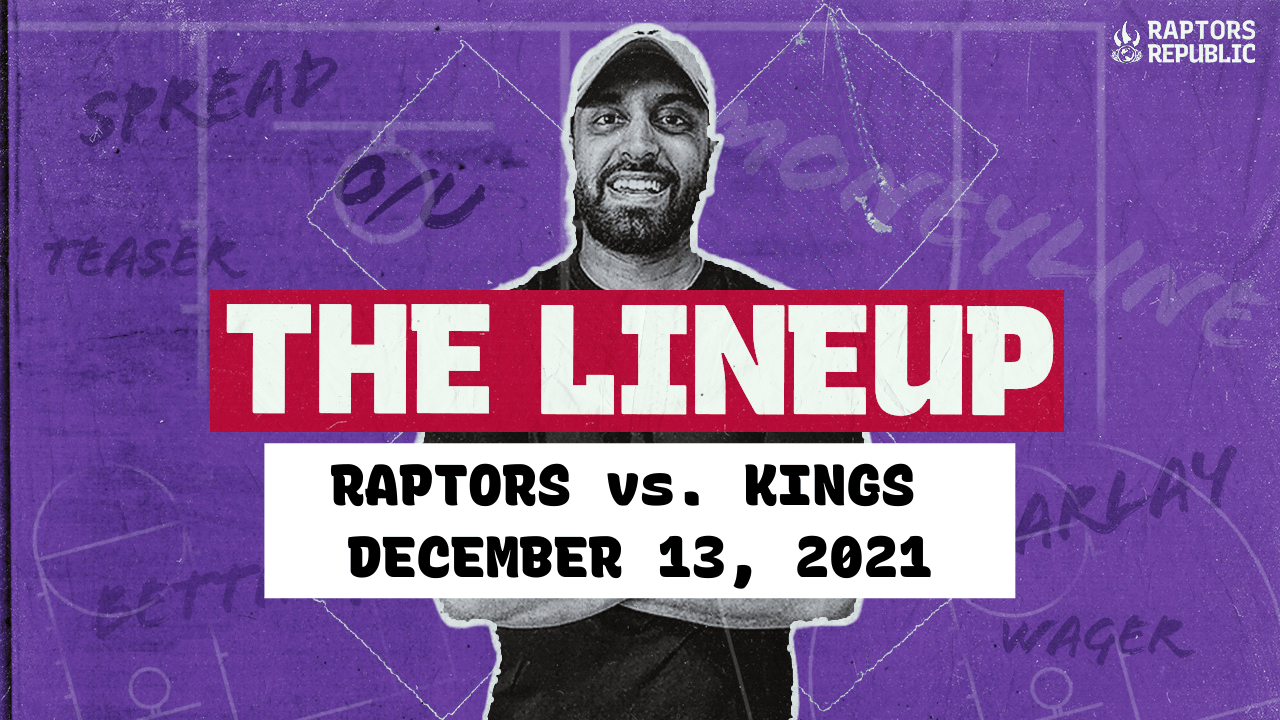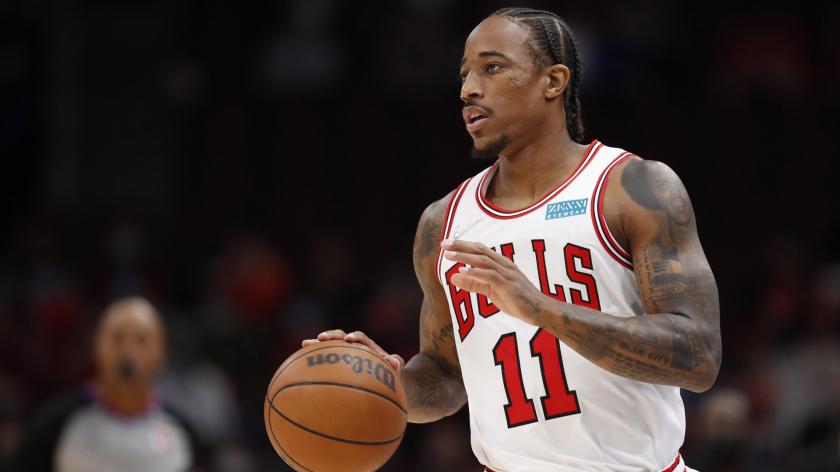The following is a guest post by Teru Ikeda. He is a Japanese-Canadian freelance writer and FIBA agent. He has organized various Toronto Raptors Japan Day events.
After the Toronto Raptors finished playing the Washington Wizards in their season opener, Yuta Watanabe texted me, “we’re leaving (Scotiabank) Arena now.”
He was on his way to an izakaya I had planned a small viewing party at for the Japanese community. I had only met him a week earlier at a Raptors party, where I swam through a crowd of gorgeous 20-somethings in a desperate attempt to connect with The Chosen One.
After swimming like a salmon upstream, I got to the back of the venue and a six-foot-10 friend of mine used his height and his relationship with Pascal’s brother to get Yuta’s attention for me. Liquid courage helped me wave Yuta down, and I introduced myself in Japanese. As he got closer, I dapped him up, signaling that I was Canadianized, willing to go beyond the standard polite bow.
He asked, “are you Japanese?” and I said yes. My Japanese still sober, I talked to him for a few minutes over blaring speakers. I had really gone there with one intent in mind: to invite him to said viewing party with a current guest list of exactly zero…so far.
I gave him my business card and asked what’s the best way to get a hold of him. He nonchalantly said, “hit me up directly,” and plugged his digits into my phone as four ladies beside me were screaming his name. I texted him several times after but received no reply.
So the next morning, I summoned up the courage to call him and leave a message before hopping into the shower. Just as I was about to turn the water on, the phone rang.
Frantically, I turned my phone around, and it was Yuta calling. I rushed out of the bathroom, picked up the phone, and after chatting briefly confirmed he’d be at the izakaya. This was all while I stood in my kitchen with only a bath towel over my hip.
The biggest Japanese athlete to ever play for a Toronto pro sports franchise made himself so accessible. He is exactly who he seems to be — a ‘real one.’ Lots of excitement led up to the home opener that week, and finding Japanese people to come out on a Wednesday night was no longer an issue.

The night of the season opener, we all waited anxiously for the arrival of our beloved six-foot-nine Raptor. As soon as he made it to the front door, all eyes locked on him, and he was greeted with a standing ovation. It meant the world to me that a Japanese superstar so casually pulled up to greet our community in Toronto. Back in Japan, moments like these would be nearly impossible. And it wasn’t a brief appearance — he stayed afterwards and spoke with every fan who wanted that personal connection.
Kotaro Kawashima, who runs a youtube channel about the Raptors in Japanese, was there that night. He finally got to talk to the person so much of his content revolves around. He started creating consistent content in the 2020-21 Tampa Bay season, and his subscriber base has grown to 9.61k and has amassed more than 4.6 million views.
The Uike family, whom Kotaro and I met while interviewing Raptors fans outside Scotiabank Arena, could not believe their eyes. They recently arrived in Canada from Japan. Uike has three sons, and the oldest one, Taro, currently plays on Dalano Banton’s former club team Canada Basketball Academy. For kids like Taro, actually meeting his idol had an impact far beyond the other adults in the room. The entire Uike family, draped in Watanabe gear, spoke to Yuta and got their jerseys signed.
In the same way that the Carter Effect (and Steve Nash) inspired the current crop of Canadian NBA talent, Yuta’s impact (and Rui Hachimura’s) on Japanese basketball cannot be underestimated. By now, we all know Yuta’s jersey sold the most in Japan. But part of Yuta’s appeal comes from how many Japanese fans see themselves in him. Like him, regular Japanese folks see that fighting tooth-and-nail just to stay competitive in his world as not just a virtue — but required for survival.
Japan is a country of 126 million with a dwindling, aging population, geographically isolated from the world. The collective need to put in maximal effort, known as the ganbaru spirit, has been etched into the Japanese psyche for decades. A Japanese post-war identity based around labour was rebuilt and recreated to make the country globally competitive. Though Japan rapidly ascended, it still sees itself as a perpetual underdog, much like Watanabe’s own self-perception.
When a Japanese athlete with Yuta’s undrafted, underdog story climbs out of the G-League trenches onto an NBA roster, he embodies this ganbaru spirit. Similarly, we as Raptors fans embraced Kyle and love Steady Freddy for embodying the gritty identities attributed to the cities they’re respectively from (North Philly and Rockford).
On Sunday the 5th of December, slightly north of 375 fans got their Japan Day t-shirts and enjoyed watching the Raptors dominate the Wizards. I had the rare privilege of afterward moderating a Q&A with Yuta — a surreal experience standing on the floor of Scotiabank Arena in front of my community. Just like the first time Yuta came to the izakaya, he initially had the same nervous, lean-back (but not the overly-confident Fat Joe one) posture, apprehensively interacting with the crowd. But as my questions flipped into Japanese, his posture turned more relaxed, and he came into his element.
This was the third Toronto Raptors Japan Day event. Our NBA franchise recognizes Yuta’s appeal to the Japanese fanbase, and we finally congregated in-person after doing a virtual event, entirely in Japanese, this past summer, headlined by him as well as Bobby Webster and NBA Asia’s Scott Levy.
The following Monday, I had another chance encounter with Yuta as the Raptors came to support the 905 at Scotiabank Arena. In typical Canadian and Japanese fashion, he apologized for having his mic too low during the previous night’s Q&A. He knew this because he had watched Kotaro Kawashima’s recap on YouTube the night before.
Yuta pulled up to a private event while nursing a calf injury and checks out his fanbase’s content. The love and dedication the Japanese community feels for Yuta isn’t a one-way street. He’s willing to reciprocate the love despite still being new to this city, and for that, Toronto will always appreciate a real one.



